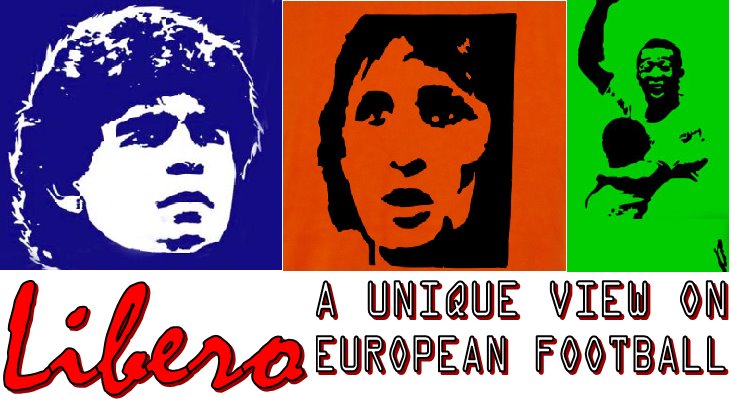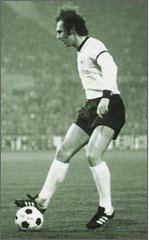Continuing on from yesterday, here is the next five, which were influenced by pieces of magic, the event and social and moral talking points.
Real Madrid 0-1 Ajax 1973 European Cup Semi-final second leg
According to David Winner, author of ‘Brilliant Orange’ the greatest moment of Ajax’s ‘Golden Age’ was not a goal or a great save. It was a simple piece of juggling by a player who had idolised the legends which had graced the turf of the Bernabeu before him. Gerrie Muhren had the 110,000 fans applauding, rather than the customary white handkerchiefs away teams were used to. It was said to be the moment Ajax took over from Real Madrid as the true Kings of Europe. Having already won the two previous European cups, Ajax strolled to their third successive European Cup victory, having raised the Bernabeu to applaud the brilliance of totaalvoetbal.
Italy 3-2 Brazil 1982 World Cup Second Round
This was truly an occasion was for a phoenix to rise from the flames. His name blackened from a betting scandal and his critics rounding on the poor performances of his and the national’s teams poor ‘aimless’ play. They reached the second round on the back of three draws to meet a Brazilian side that truly brought back beautiful football. Falcao, Zico and Socrates, formed a midfield of vision technique and unlimited flair. Yet it was Rossi who struck first blood, ghosting in to score a free header. John Motson said the Brazilian school of footballing philosophy shows ‘how to play when you’re behind’. He was proved right when an awesome turn by Zico allowed him to release Socrates with a threaded pass. Yet Rossi replied with a brace, and even with a Falcao thunderbolt, Italy prevailed with Dino Zoff making crucial saves. ‘Thankfully skill will still prevail even though teams try to destroy it’. In hindsight, Motson’s words truly marked the ‘death of joga bonito’ as one internet forum member put it. Brazil’s light, glowing football did not prevail and it was loss for football in the long run.
Arsenal 2-1 Sheffield United 1999 Premier League
The unwritten rule can have a strong influence and it did until the English FA decided to ignore it from this previous season and onwards. Kelly was putting a ball out, so that his team-mate could receive treatment, or rather so that Bergkamp didn’t score. The resulting throw-in, was taken by Parlour to the Sheffield United players, but was intercepted by Kanu, who crossed for Overmars to slot home. The fact that giving the ball back is seen as an unwritten rule, no-one cannot be sure if all 22 players are playing to the same rule! The match was followed by a generous offer by Arsenal to replay the match, which Steve Bruce ‘expected’, yet in truth he had no right to. Arsenal won the return match 2-1, with no controversy.
Peru 0-6 Argentina – 1978 World Cup Second Round
The situation: Argentina needed to win by more than four goals to reach the final. Why? Brazil’s superior goal difference was blocking their path to World Cup glory. The conspiracy theory: The game was fixed. The Peruvian keeper had only let in 6 goals in his previous five games; He had Argentinean nationality too. Argentina had only scored 6 in their previous games; the exact margin they won this game by. Argentina progressed to the final where they used stalling tactics to unnerve the Dutch team in Estadio Buenos Aires, a cauldron of blue and white. The greatest mystery of all: they were winners of the FIFA Fair Play Award.
Germany 2-1 Holland 1990 World Cup Round of 16
After the second World War, the Dutch had moved away from it and had rebuilt. A few generations later, books were released about concentration camps, and trials were held for war crimes. Thus the new youth, which included the footballers, coached by Cruyff, in van Basten, Gullit and Rikjaard saw Germany as the enemy. This boiled over onto the pitch, with Rikjaard spitting at Rudi Voller, and this settled the match. Another aspect to the rivalry was the setting. Stadio Giuseppe Meazza. The AC Milan team of the nineties had a Dutch spine, and in contrast the Inter team, contained a number of Germans. Thus the match reflected a rivalry that was on a number of planes; club and international. The defeat also caused violent clashes on the Dutch-German border.
Friday, 28 December 2007
Subscribe to:
Post Comments (Atom)



No comments:
Post a Comment